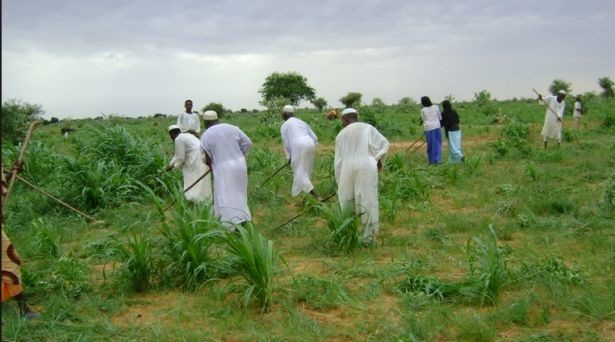Economic
Corn Exporter: Balancing Food Security and Avoiding Losses

Report by: Rehab Abdullah
Reactions have varied regarding the request submitted by farmers from Al-Gadarif to the Federal Minister of Agriculture to open corn exports, following their complaints about the rising production costs. Some argue that now is not the right time to allow corn exports, justifying their stance by stating that the current situation is unstable and that securing Sudan’s food supply is crucial. However, another group, including producers, supports the idea of opening corn exports to prevent farmers from incurring losses if prices drop.
The Bet
Ghareek Kambal, Deputy President of the Rain-fed Farmers Association, tied the opening of corn exports to ensuring surplus production. He pointed out that the situation is still exceptional and suggested waiting until the army achieves full victories, starting with liberating all production areas in Sennar and Al-Jazira. He believes this would ensure that exports do not negatively affect Sudan’s strategic corn reserves at present.
Lack of Clarity
However, Omar Taha Al-Bashir, the national coordinator of producers’ organizations at the Ministry of Agriculture and Forestry, told Al-Ahdath that the situation remains unclear. He explained that export openings are considered when production quantities are high, and prices are weak, which leads to price drops.
Self-Sufficiency
Hassan Mohamed Ali Abu Aouf emphasized that the decision to open exports depends on production estimates, the level of self-sufficiency, and food security. He told Al-Ahdath, “If the local market cannot absorb the surplus production, then export can be considered to prevent local producers from suffering.” He affirmed that this is often the case with corn production, adding that “the sole criterion is the degree of self-sufficiency.”
Justifications for the Export Request
Farmers in Al-Gadarif state have complained about rising production costs and agricultural input fees for the current season. They urged the government to secure harvesting requirements and provide farmers with fair prices that reflect their efforts. Ahmed Abdul Rahim Al-Awad, head of the farmers’ committee in Al-Gadarif, stated during a meeting with the Federal Minister of Agriculture as part of his visit to the state that the committee had raised several challenges faced by farmers this season, including harvest issues. He mentioned that the committee discussed labor, marketing, and fuel availability with the minister, while also addressing the purchase of strategic reserves and the involvement of banks in marketing and buying production, as well as opening corn exports. Despite some initial issues at the start of the season, these were resolved in light of the country’s current circumstances. The minister showed responsiveness to resolving these challenges, including labor shortages and opening corn exports, to prevent the production from becoming a burden on the farmers.
The Background
Sudan has banned corn exports for years to build reserves and secure food supplies. However, the ban is occasionally lifted, depending on production levels and price conditions. The last time this occurred was in December 2023.



